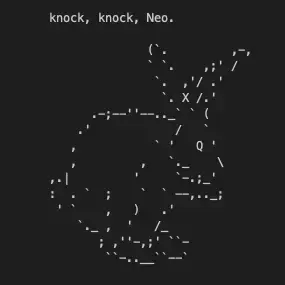1 kilobyte = 1024 bytes. This is a hill I’ll die on.
The byte isn’t even the base unit. Wanna talk about 1000 bits? Fine, that would be totally useless and confusing, but at least it would be consistent. Using decimal prefixes to describe binary numbers is just nonsensical. It’s like trying to round off calendar days to a decimal approximation. Is the metric year 300 days? Fuck no, that’s dumb,and so is saying a kilobyte is only 1000 bytes. The prefix is just a short hand, it’s obvious that its precise meaning can and should change based on the unit, especially when forcing a decimal number system fails to be useful.
And furthermore, what about radians? Both radians and kilobytes are basically just a grouping mechanism for counting something else. Nobody talks about radians in decimal terms, always multiples or fractions of Pi. Kilobytes aren’t really any different conceptually.
Yeah, not cool with trying to retroactively change definitions of units.
1000 bytes isn’t meaningful. 1024 is.
I’m with you.
For me it was all the marketing shenanigans where you bought a 500GB drive and it had not 500GB but some multiple of ten * 500 bytes that started it all.
Leg them use kibibytes or whatever stupid name grrrr
/Rant off
1 kibibyte is 1024 bytes
Why should we change?
Some of these are annoying and wrong, but some are acceptable and the author is being overly pedantic. But I guess in the strictest environment (e.g. a scientific paper) even the acceptable deviations should be avoided.
stacking prefixes is disallowed (e.g. 10 k km), and because using mega is both correct and more concise (e.g. 10 Mm).
If you’re talking distances and you say Mm, I’m far more likely to assume you mean millimetres. It might be technically correct, but it’s bad communication.
Yeah, he had me with him until I got to there.
Screw off telling people there’s something wrong with using 10k km. It’s widely accepted and far easier for normal people to understand. There are also plenty of scenarios where using a single, fixed unit (whether km or kg) is just better than using different units for different things.
At least scientific notation gives a clear numeric indication of scale. Even if you use the entire range of metric daily, you’re taking half a second to compare any time there’s mismatched units.
Screw off telling people there’s something wrong with using 10k km.
Yeah, it’s not even a double prefix like the article implies. It’s 10 with a suffix, and m with a prefix.
Also, no one outside of scientific papers is going to type the degree symbol for temperature because it’s not a common feature of keyboards.
Of english keyboards. Which honestly annoys the hell out of me because I am very used to german keyboards which do have it, but I switched to UK layout at some point because I generally prefer it. It’s like the one thing I miss.
Do you mean physical computer keyboards? If you’re on a Windows or Linux machine I’m pretty sure there’s an alt code for it, but I never remember what any of those are. On a Mac computer you can hit option+0 to get the ° symbol.
On Apple devices with on-screen keyboards you just long-press zero to get the the ° symbol, that’s how I’m typing right now. I’d assume android has the same feature but idk I haven’t used an Android enough to the point I needed to type ° in 6 years or so.
To the other persons point, this is all on American English keyboards, but I don’t see why there would be any difference between that and a UK English keyboard, or any other keyboard language with a Latin-script alphabet for that matter.
This is the page I use… https://www.theregister.com/Design/page/reg-standards-converter.html
“Pronunciation of kilometre” this guy can fuck right off with this one






